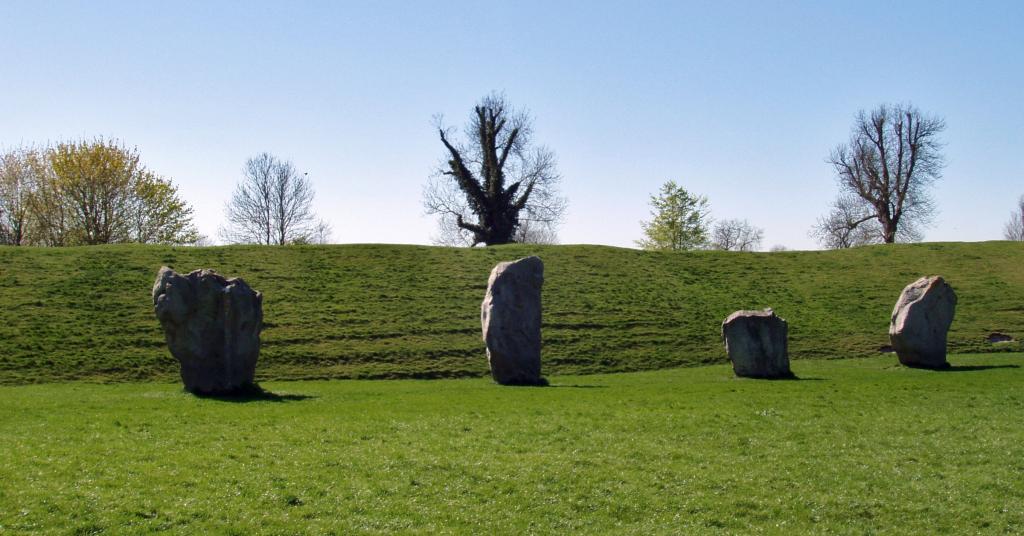What do you do when you find yourself in a spiritual situation you can’t handle?
Maybe something – or someone – has moved into your house and is making a nuisance of themselves. Maybe you have a serious need and your magic hasn’t been able to produce the necessary results. Or maybe a God won’t take no for an answer and you really don’t want to say yes.
Unless you’re incredibly stubborn, you ask for help. There are many sources, including some on this blog.
But sometimes you need more than knowledge.
You need skills it takes years to develop. You need an advocate or a personal introduction. Or you need more magical muscle power than any one person can generate. Remember the exorcism scene from Practical Magic (1998)? Aunt Frances and Aunt Jet were powerful witches, but they knew they needed a coven for this. Even untrained people would do – they just needed more raw power.
Practical Magic is Hollywood fiction, but there’s truth embedded in this scene. Some things simply can’t be done alone.
When it comes to spiritual conflicts, many of us like to think we’re The Bride from Kill Bill (2003), taking on the Crazy 88 in the Showdown at House of Blue Leaves and mowing them all down. Yes, that scene was an homage to Bruce Lee, but not even he could survive an attack of that magnitude.
Sometimes we need help. Not advice, not instruction, not even wisdom. We need someone – or many someones – to stand behind us, or beside us, or occasionally in front of us.
And many Pagans are solitary practitioners, alone in an environment that is indifferent to our success or failure, sharing both ordinary and spirit worlds with persons who see us as a resource to be exploited for their own purposes.
So what do we do?
A lack of connection and collaboration
The prevalence of solitary practitioners began largely as a matter of numbers. More people wanted training and initiation in Wicca, witchcraft, and related traditions than could be handled by existing teachers. I began my Pagan journey in the 1990s in the days when Barnes & Noble was everyone’s first teacher.
As it turns out, a lot of people like being solitary. They had a bad experience in another religion. They want to practice on their own timetable. They want to do exactly what they want to do the way they want to do it.
That’s not wrong. And it’s not just Pagans who are moving in that direction. Christian churches are hemorrhaging members. Most of those leaving aren’t becoming atheists. They’re joining (if “joining” can be used in this context) the Spiritual But Not Religious movement, which its conservative detractors call “moral therapeutic deism.”
The key (at least for our purposes here) is that they’re solitary. And they’re setting an example in the wider culture that a religious community is unnecessary – an example many Pagans and witches are happy to follow.
I had hoped for groups and networks
I believe in religious community. Good religion is what binds us together, not with shared beliefs but with shared values, shared practices, and mutual support. I’ve been preaching the value of Pagan groups for as long as I’ve been blogging (that’s 13 years, in case you weren’t aware).
My vision was that we would begin forming strong local groups around the country and around the world. Those groups would network regionally by geography and world-wide by tradition. This would allow us to serve more seekers, build infrastructure, and be available to support each other both spiritually and physically.
That isn’t happening.
Oh, some local groups are very successful. There are a few networks, like Covenant of the Goddess and ADF. But they’re the exception, not the rule.
We aren’t building groups and networks because most of us don’t want groups and networks. Or we only want them if they’ll be exactly what we want them to be. That’s not how groups work.
The question of solitary practice vs. group practice mostly comes down to personal preference. You can perform devotion, study philosophy and theology, work magic, and do other religious and spiritual work on your own just fine, even if you could take them farther with group practice.
But sometimes you need more than what any one person can do.
The spirit world doesn’t care about personal autonomy
First the Protestants told us that religion was a matter of individual belief (and that they had the One True Way, but that’s not what’s important here). Then our wider society began to celebrate cultural rebels and told us to “do your own thing.” And let’s not forget the American idea of the “rugged individualist” (which is a toxic idea, but that’s another rant for another time).
The spirit world doesn’t care about personal autonomy.
Read the grimoires: the goal is basically to claim the authority of a God or holy person and use that authority to command lesser spirits to do your bidding. Listen to contemporary practitioners talk about being claimed, about “horse trading” among the Gods, and about asking one deity to intervene in a situation with another deity.
There are corners of the spirit world where you will be seen as a traveler to be shown hospitality, and there are other corners where you will be seen as an interloper to be constrained… or exploited… or eliminated.
Like the ordinary world, the spirit world isn’t all about us. There are sharks and grizzly bears in this world, and there are similar persons in the spirit world.
Do I bring this up too often? I don’t think that’s possible, especially in our naïve and human-centric contemporary culture.
Sometimes you need a safe conduct pass. Sometimes you need a skilled negotiator who’s familiar with the ways of a particular group of spiritual persons.
And sometimes you need a small army standing with you, making it clear that you aren’t easy prey.
Cultivating spiritual allies
Some of this can be done on our own. As most polytheists emphasize, our ancestors are our most accessible allies. Set up an ancestor shrine, make regular offerings, call their names and celebrate their lives – stuff we should all be doing anyway. They’ll be there when you need them.
To the extent that they can. A quote I’ve heard from several sources says “just because they’re dead doesn’t mean they’re smart.” And considering that for those of us of European descent, our ancestors have been Christians for the past 50 generations or so, they may be disinclined to support our Pagan and heretical endeavors.
Cultivating relationships with Gods is the core of my own polytheist religion. I have on occasion asked Cernunnos or the Morrigan to intercede for me when other deities wanted my services. So far so good. But our priorities are not Their priorities. If I get myself into a jam doing something that isn’t in their service, They may not be in any hurry to bail me out.
We can also form and maintain alliances with other-than-divine persons. These can be useful, in this world and in the Otherworld. But bargain carefully, particularly when you’re dealing with the Fair Folk.
How can solitary practitioners find human allies?
But even with all this, there are times when you need 13 witches to cast an ambitious spell. There are times when you need someone (in this world) you can talk to (verbally, in your language) and have them intercede on your behalf. And there are times when you need an established group to put you under their protection and say “this one is ours and you won’t be taking them.”
You may never need any of this. If your work is limited to worshipping the Gods and celebrating the seasons, these situations may never arise.
But the more you journey into the Otherworld, the more you interact with spiritual persons, and the more you work “big” magic, the more likely you are to need spiritual backup.
It would be easy for me to scream “see, this is why you need to be forming covens and groves!” or “find a group before you need a group!” or something like that. But if people haven’t done that already, this isn’t going to convince them, particularly the first time things get difficult in a group – which they always do, because we’re human and humans are messy.
Networks of support
This mostly hasn’t been a problem for me. I’m part of a good, strong local group. I’m friends with a lot of experienced Pagans, polytheists, witches, and others – there are people I can call on when I need help.
What can we do – what can you do – to have resources available when you need them?
How do we form loose networks of (mostly) like-minded practitioners? Most of us are willing to help our friends. We’re less willing to help people we don’t know, if only because we don’t know if they’re having a spiritual emergency or if they need mental health care. I don’t have to know you practice just like I do in order to help you. I just have to know you well enough to trust you.
How do we build a common vocabulary, so we have a consistent idea of what a given situation entails?
How do we develop common practices, so when we need to join together from all over the world we’re all doing the same things?
How do we build spiritual connections that can be activated from where ever we are? There are established ways to do this if everyone is part of the same group, but that puts us back to that “joining a group” thing. I can connect to you and you can connect to your friend in Switzerland, but can the three of us join together for a one-time working even if I don’t know your friend? Can we form a “witch chain” of 13 people? Or more?
What else can we do?
Beginning a conversation
I imagine for some of you, talk of networking and common vocabulary and witch chains sounds too much like joining a group. Too much chance somebody’s going to “tell you what to do” or suggest you should be accountable, even if it’s just to your own word. So be it. If you want to be an absolutely solitary practitioner, that’s absolutely your right and I wish you well with it.
But for the rest of us, particularly those who would like to be part of a group but who can’t due to differing traditions or geography or extreme introversion, there may be a way to find the spiritual support you need when you need it most.
I have no concrete proposals. I’m not volunteering to set up a phone tree like in Practical Magic. But I’m thinking about these things.
And I imagine some of you are too.




















